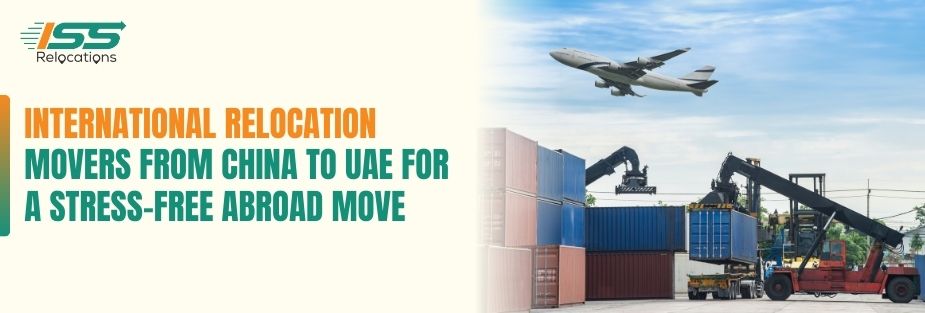
The Role of Customs Brokers in Freight Forwarding: Comprehensive Guide
Customs Brokers are professionals who are licensed by the government to act as intermediaries between importers and exporters and the government agencies that regulate international trade. Customs Brokers play a crucial role in ensuring that goods are cleared through customs smoothly and efficiently, and that all legal and regulatory requirements are met. In this blog, we will discuss the role of Customs Brokers in Freight Forwarding, the various services they offer, and the legal requirements and qualifications for becoming a Customs Broker. We will also discuss the importance of compliance and the challenges involved in Customs Clearance. Finally, we will look at emerging trends in Freight Forwarding and the future of Customs Brokers in the global trade industry.
What are Customs Brokers?
Customs Brokers are licensed professionals who act as intermediaries between importers and exporters and the government agencies that regulate international trade. Their main function is to ensure that all goods that enter or leave a country comply with the relevant laws and regulations. Customs Brokers are responsible for preparing and submitting all necessary documentation to clear goods through customs, such as commercial invoices, packing lists, bills of lading, and customs declarations. They also liaise with government agencies, such as customs and border protection, to ensure that all legal and regulatory requirements are met.
Customs Brokers Guide
Learn the role of customs brokers in freight forwarding with key duties and process insights in this guide.
To become a Customs Broker, one must meet certain legal requirements and qualifications. The U.S. Customs and Border Protection agency (CBP) requires Customs Brokers to be licensed by passing a rigorous examination that tests their knowledge of customs law and regulations. In addition, Customs Brokers must have a good reputation, be of good character, and have sufficient financial resources to operate their business.
The roles and responsibilities of Customs Brokers can vary depending on the needs of their clients. Some Customs Brokers specialize in specific industries, such as textiles or pharmaceuticals, while others offer a wide range of services to all types of businesses.
How Customs Brokers help in Freight Forwarding
Freight Forwarding is the process of organizing the shipment of goods from one place to another. It involves coordinating the various stages of the shipment, such as transportation, customs clearance, and delivery. Customs Brokers play a vital role in Freight Forwarding by ensuring that all legal and regulatory requirements are met.
The role of Customs Brokers in Freight Forwarding includes preparing and submitting all necessary documentation for customs clearance, such as commercial invoices, packing lists, and bills of lading. They also ensure that all taxes and duties are paid on time and that any applicable licenses or permits are obtained. Customs Brokers also liaise with government agencies to resolve any issues that may arise during customs clearance, such as inspections or seizures.
Advantages of using Customs Brokers in Freight Forwarding include the ability to navigate complex customs procedures, access to expert knowledge and advice, and faster and more efficient clearance of goods through customs. Customs Brokers can also help to reduce the risk of customs penalties and fines, which can be costly and time-consuming for businesses.
Types of services offered by Customs Brokers include customs clearance, import and export compliance, tariff classification, and duty drawback. Customs Brokers may also offer additional services such as freight forwarding, warehousing, and distribution.
The Process of Customs Clearance
Customs Clearance is the process of obtaining permission from government agencies to import or export goods. It involves the submission of various documents to the relevant authorities, such as customs declarations, bills of lading, and commercial invoices. The process of customs clearance can be complex and time-consuming, and it is important to have an experienced Customs Broker to help navigate the process.
The role of Customs Brokers in Customs Clearance includes preparing and submitting all necessary documentation to the relevant authorities, such as customs declarations, bills of lading, and commercial invoices. They also ensure that all documents are accurate and complete, as any errors or omissions can result in delays and penalties. Customs Brokers also work closely with customs officials to resolve any issues that may arise during the clearance process, such as inspections or discrepancies in the paperwork.
The steps involved in Customs Clearance can vary depending on the country of origin and destination, as well as the type of goods being imported or exported. However, some common steps include:
1. Preparation of Documentation: Customs Brokers collect and prepare all necessary documents for submission to the relevant authorities, including customs declarations, bills of lading, and commercial invoices. They ensure that all information is accurate and complete, and that all required licenses and permits are in place.
2. Submission of Documents: Once all documentation is complete, Customs Brokers submit the paperwork to the relevant authorities, such as customs officials or border agencies. They ensure that all documents are submitted in a timely manner, and that all fees and duties are paid.
3. Customs Inspection: Customs officials may inspect the goods being imported or exported to ensure that they comply with all relevant regulations and standards. Customs Brokers work closely with customs officials to resolve any issues that may arise during the inspection process.
4. Release of Goods: Once all documentation has been submitted and any inspections or issues have been resolved, the goods are released for shipment. Customs Brokers ensure that all necessary paperwork is provided to the carrier or freight forwarder, and that the goods are shipped to their intended destination.
Challenges in Customs Clearance can include language barriers, cultural differences, and changing regulations and requirements. Customs Brokers can help overcome these challenges by providing expertise and guidance on local regulations and procedures, as well as by serving as a liaison between importers or exporters and customs officials.
In addition to helping with the Customs Clearance process, Customs Brokers also play an important role in ensuring compliance with relevant regulations and standards.
Read Also: How Self Storage Abu Dhabi Can Simplify Your Moving Process
The Importance of Compliance
Overview of Compliance:
Compliance refers to the process of ensuring that import and export activities comply with all relevant regulations and standards. This can include regulations related to customs, trade, and security, as well as environmental and safety standards.
Legal requirements for Compliance:
Importers and exporters are legally required to comply with all relevant regulations and standards. Failure to comply can result in fines, penalties, and even criminal charges. In some cases, non-compliance can also result in the seizure or destruction of goods.
The role of Customs Brokers in Compliance:
Customs Brokers play a critical role in ensuring compliance with all relevant regulations and standards. They have extensive knowledge of local regulations and procedures, and can provide guidance and support to importers and exporters to help them navigate complex regulatory frameworks.
Benefits of Compliance:
Compliance with relevant regulations and standards can help importers and exporters avoid fines, penalties, and other legal consequences. It can also help to ensure the safety and quality of goods, and can help to build trust and credibility with customers and partners.
Risks of Non-Compliance and how Customs Brokers help:
Non-compliance with relevant regulations and standards can result in fines, penalties, and other legal consequences. It can also damage a company’s reputation and lead to the loss of business. Customs Brokers can help importers and exporters avoid these risks by providing expertise and guidance on compliance issues, as well as by helping to ensure that all necessary documentation is complete and accurate.
The Future of Customs Brokers in Freight Forwarding
Emerging trends in Freight Forwarding and Customs Brokers:
Freight Forwarding and Customs Brokers are facing a number of emerging trends, including the increasing use of technology, the growing importance of sustainability and environmental concerns, and the changing geopolitical landscape. These trends are likely to have a significant impact on the role of Customs Brokers in the global trade industry.
Read Also: Cost of Life in Switzerland: Guide for Relocating from Dubai
Technology advancements and their impact on Customs Brokers:
One of the most significant trends in the freight forwarding and customs brokerage industry is the increasing use of technology. Technology is transforming every aspect of the industry, from how goods are tracked and transported to how they are cleared through customs. Customs Brokers are increasingly using technology to streamline the customs clearance process and reduce the risk of errors or delays. For example, they are using electronic documentation and automated systems to speed up the clearance process, reduce paperwork, and ensure compliance with regulations.
Customs Brokers are also using technology to improve their communication with clients and other stakeholders in the supply chain. They are using cloud-based platforms, mobile applications, and other digital tools to provide real-time updates on shipment status, track inventory levels, and monitor compliance with regulations. In addition, they are using data analytics and artificial intelligence to identify trends and patterns in trade flows and to make better-informed decisions about trade and risk management.
The growing importance of sustainability and environmental concerns:
Another emerging trend in the freight forwarding and customs brokerage industry is the growing importance of sustainability and environmental concerns. Customers are increasingly demanding that their supply chain partners adopt sustainable practices and reduce their carbon footprint. Customs Brokers are responding to this trend by adopting environmentally friendly practices and implementing sustainability initiatives.
For example, Customs Brokers are working with their clients to reduce packaging waste, optimize transportation routes to reduce emissions, and use alternative energy sources. They are also implementing green supply chain practices, such as using eco-friendly materials and reducing the use of non-recyclable products. By adopting sustainable practices, Customs Brokers are not only meeting customer demands but also contributing to the overall goal of reducing the industry’s environmental impact.
Call Our Experts Today
The changing geopolitical landscape:
The geopolitical landscape is also changing, and this is having a significant impact on the freight forwarding and customs brokerage industry. The rise of protectionism, trade disputes, and geopolitical tensions is making it more difficult for companies to trade internationally, and Customs Brokers are playing an increasingly important role in helping companies navigate these challenges.
Customs Brokers are helping companies to understand the complex regulatory environment, mitigate risks, and comply with regulations in different jurisdictions. They are also providing strategic advice on trade negotiations and tariff management. As the geopolitical landscape continues to evolve, Customs Brokers will be essential partners for companies looking to navigate the complexities of international trade.
Conclusion:
In conclusion, Customs Brokers play a vital role in the freight forwarding and customs clearance process. They help companies to navigate the complex regulatory environment, mitigate risks, and ensure compliance with regulations. They also provide strategic advice on trade negotiations, tariff management, and other issues related to international trade. With the increasing use of technology, the growing importance of sustainability, and the changing geopolitical landscape, Customs Brokers will continue to be essential partners for companies looking to succeed in the global trade industry. By working with an experienced Customs Broker, companies can ensure that their shipments are cleared quickly, efficiently, and compliantly, while minimizing the risk of delays, fines, or other issues that could impact their business.
Plan Stress-free Move with Top Moving Company in UAE - ISS Relocations

Frequently Asked Questions
What is the purpose of a customs broker?
The purpose of a customs broker is to facilitate the import and export process by ensuring that goods meet all legal requirements and regulations. They manage the clearance of goods through customs, handle paperwork, and pay applicable duties and taxes. ISS Relocations works with experienced customs brokers to ensure a smooth, efficient, and compliant international shipping experience for your goods.
What is a broker in freight forwarding?
A broker in freight forwarding is an intermediary who helps coordinate the transportation of goods from one location to another while ensuring compliance with customs regulations. They handle the documentation, tariffs, and legal requirements necessary for smooth international shipping. ISS Relocations partners with trusted brokers to ensure timely and secure deliveries of your goods worldwide.
Is a customs broker the same as a freight forwarder?
No, a customs broker and a freight forwarder are not the same. A customs broker specializes in ensuring that goods meet customs regulations, while a freight forwarder handles the logistics of transporting goods. ISS Relocations offers both customs brokerage and freight forwarding services, providing a comprehensive solution to ensure smooth and efficient shipping of your goods.
What is freight forwarding and customs?
UAE, Freight forwarding is the process of coordinating the transportation of goods, while customs refers to the procedures required to import and export goods across borders. A customs broker ensures that your goods comply with customs regulations. ISS Relocations offers expert freight forwarding and customs services, managing both logistics and customs clearance to ensure a seamless international move.
What is the difference between a customs broker and importer?
A customs broker is responsible for managing the import process, ensuring goods comply with customs laws and regulations, while an importer is the person or business that owns the goods and brings them into the country. ISS Relocations assists both importers and customs brokers, ensuring a smooth and compliant import process for goods coming into or going out of the UAE.
What is the difference between a forwarding agent and a freight forwarder?
A forwarding agent handles specific tasks in the shipment process, like booking transportation and managing logistics, while a freight forwarder manages the entire transportation and logistics process from start to finish. ISS Relocations provides comprehensive freight forwarding services, ensuring that all aspects of your move are covered from start to finish.
Is a customs broker the same as a customs agent?
A customs broker and a customs agent perform similar tasks, but there are differences in their responsibilities. A customs broker typically handles the legal and financial aspects of importing goods, while a customs agent is involved in the procedural side, such as processing declarations. ISS Relocations partners with trusted customs professionals to ensure that your goods are cleared efficiently and in compliance with all regulations.
Moving Company - Recent Blog
Stay informed and prepared for your next move with our latest blogs on moving services in the UAE. From expert packing tips to international relocation guides, ISS Relocations brings you up-to-date insights to make your moving experience smoother, safer, and stress-free.










